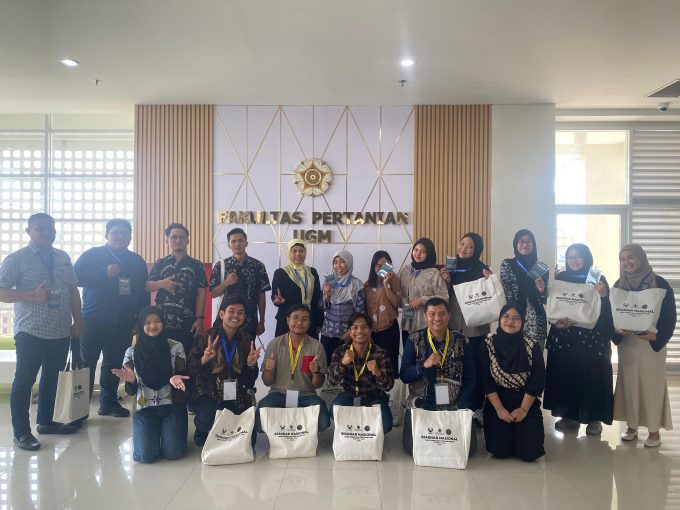
The 14th National Seminar on Agricultural Research Results is one of the important forums for researchers, academics, and students to present the latest research findings in various fields, including agricultural microbiology. This national seminar was held on Saturday, September 21, 2024. The theme of this national seminar was “Optimizing Land Use and Adapting to Climate Change to Achieve Food Sovereignty.” The microbiology students involved in this national seminar were Qurata A’yun Dyah Palupi, Badran Sa’adi, Padia Desi Rahmawati, Almayra Khanza Fahrani, Sherly Aurora Cahyadewi, Kirana Agist Wangsa Putri, Jihan Mustika, and Nisa Nahwa Pramestya Rini. Some of the topics presented by the microbiology students were as follows: Qurata presented “In Silico Analysis of the Solubility of Luciferase-Like Monooxygenase,” Badran presented “Solubility of Recombinant Luciferase-Like Monooxygenase Type 2 (LLM2) via Fusion Construction with pelB Leader Sequence.” “Smart-Za: Urea, Sulfur, Thiobacillus ferrooxidans as a Substitute for ZA Fertilizer with Controlled Dissolution Mechanism” was presented by Padia, Almayra, and Sherly. Kirana presented “Gold Bioleaching Ability from Metal Ores by Chromobacterium violaceum.” “The Effect of Inoculation of Acinetobacter baumannii, Rhizobium straminoryzae, and Peribacillus simplex on the Biomass Production of Spirodela polyrrhiza” was presented by Jihan.
The participation of agricultural microbiology students in this seminar not only provided an opportunity to share knowledge but also served as a platform for developing professional networks and receiving feedback from experts. The objectives of student participation in this seminar include deepening their understanding of current issues in agricultural microbiology, as well as advances in technology and research methodology. Students had the opportunity to present their research findings, both individually and in groups, and receive valuable input. Presenting in front of an audience was also a means for students to hone their communication and presentation skills, which are crucial in the academic and professional world. This seminar became a platform for exchanging information and building connections with researchers and academics from various institutions, which could be beneficial in the future.
The participation of agricultural microbiology students in the 14th National Seminar on Agricultural Research Results is a positive step for the development of knowledge and skills. Through this seminar, students were not only able to showcase their research but also broaden their horizons, establish connections, and contribute to the advancement of agricultural microbiology in Indonesia. It is hoped that activities like this will continue to be supported and enhanced in the future to cultivate a generation of more qualified and innovative researchers. This synergy serves as strong proof of achieving SDG 4, Quality Education.
